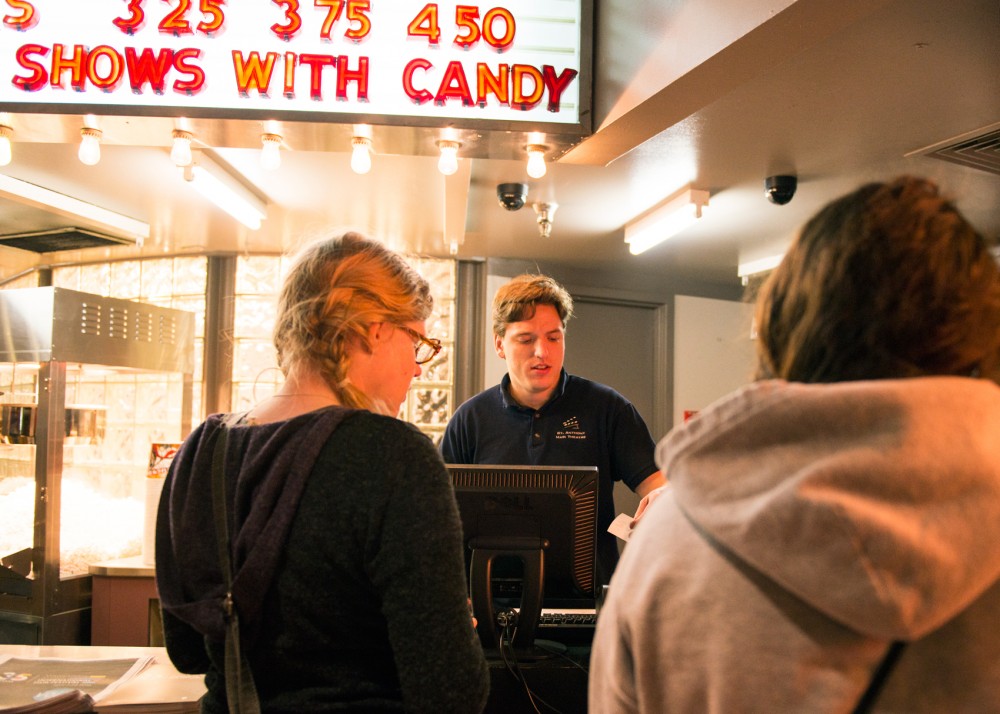If you’re going to pick out the titles that make it to the Minneapolis-St. Paul International Film Festival, you have to do more than enjoy a good flick. You have to be obsessed with watching movies.
Presenting close to 300 films from more than 60 countries, MSPIFF features everything from dramatic narratives and feature-length documentaries to short comedic tales and experimental films.
Safe to say, it is difficult to narrow down what to present.
“It’s a rigorous process,” Festival Director Eric Wilson, said. “We are looking at hundreds and hundreds and hundreds of films and finding the hidden gems.”
This Thursday’s opening, hosted by the Film Society of Minneapolis-St. Paul, kicks off the festival’s 35th anniversary. Over the course of two weeks, locations throughout the Twin Cities, including St. Anthony Main Theatre and Landmark Uptown Theater, will be showing festival picks.
According to Wilson, MSPIFF finds films via one of two avenues. Either programmers select stand-outs from visits to other film festivals around the world, or a committee picks from a pool of more than 1,000 independent projects submitted to the festival every year.
Either way, festival coordinators keep their eye out for specific qualities.
“We look for films that have never played here [in Minneapolis] and ones that are important for our audiences to see or ones that we think our audience would be interested in seeing,” Wilson said.
Organizers also take care to appeal to a wider population than the stereotypical art-house cinephile audience, Wilson said.
“We are not programming for the auteur. There will certainly be films appealing to the auteur, and they have a place in the lineup,” Wilson said. “But these films are accessible to everyone.”
The festival is methodically broken down into 22 unique programs to guide viewers’ choices, he said.
“Each of these programs is meant to serve a different community here in Minnesota,” Wilson said.
Specifically, MSPIFF worked to include films embracing emerging populations of Hispanic, Asian and African viewers in the Twin Cities.
“Within the festival, we have programs for each of those demographics,” Wilson said. “We have ‘Cine Latino,’ ‘Images of Africa’ and ‘Asian Frontiers.’ ”
Wilson also highlighted “Voices,” a tool that categorizes films based on moods.
“If you’re not sure what to see or if you’re overwhelmed by this giant lineup of films, you can take a look at the ‘Voices’ guide,” Wilson said. “These categories help navigate this ocean of cinema.”
The festival will also host filmmaking discussion panels, Q&A sessions with directors and producers and industry conferences. It also provides cinema professionals the chance to observe untapped markets and test films in front of a live audience.
“Filmmakers are coming to film festivals to not only get their films purchased but get better at their craft,” Wilson said. “[Minneapolis] has savvy audience members that will give constructive criticism.”
‘Dragonfly’
MSPIFF’s audience influenced Cara Epstein to submit her film to the festival.
“What always impresses me is how sophisticated Minnesota audiences are. They are generous but also judicious,” Epstein said. “It’s an exciting place to bring your film.”
Writing and starring in “Dragonfly,” Epstein teamed up with Minneapolis-based director Maribeth Romslo and executive producer Mim Epstein. This is the three women’s first feature-length narrative film.
The film follows the story of a struggling artist coming home to care for her mother, recently diagnosed with Alzheimer’s, and rediscovering a mysterious childhood correspondence.
With little experience and an even smaller budget, entering festivals like MSPIFF provides a relatively cheap entrance into the film industry, Epstein said.
With thousands of similar festivals around the world, Epstein carefully researched the submission process, comparing it to “applying to a college.”
Yet, the benefits of the festival are unparalleled.
“[MSPIFF] provides a conduit to an international audience of cinema makers and appreciators that [local filmmakers] may not have access to otherwise,” Wilson said.
Although it sheds a special light on international projects, the festival also presents close to 70 films featuring Minnesota actors, directors and producers.
Included in that category is “How Love Won: The Fight for Marriage Equality in Minnesota,” a documentary on the grassroots movement for Minnesota marriage referendums and eventually a Supreme Court decision.
The film’s creator Michael McIntree, said his MSPIFF entry was not born of financial interest.
“I am hoping to just break even. I didn’t do it for the money — I did it so it can be seen,” McIntree said. “The film festival route creates more buzz.”
Epstein echoed this sentiment.
“No one is in the film festival game just to make money. These are people who really love film and are excited about promoting independent film,” Epstein said.
These are the reasons MSPIFF exists, Wilson said.
“So many films are being made by people with so many different backgrounds,” Wilson said. “We are just trying to collect those and try to put them into an excellent festival.”
Minneapolis-St. Paul International Film Festival
Where St. Anthony Main Theatre, 115 SE Main St., Minneapolis
When 7:15 p.m. Thursday
Cost $7 student, $13 regular for single show tickets








